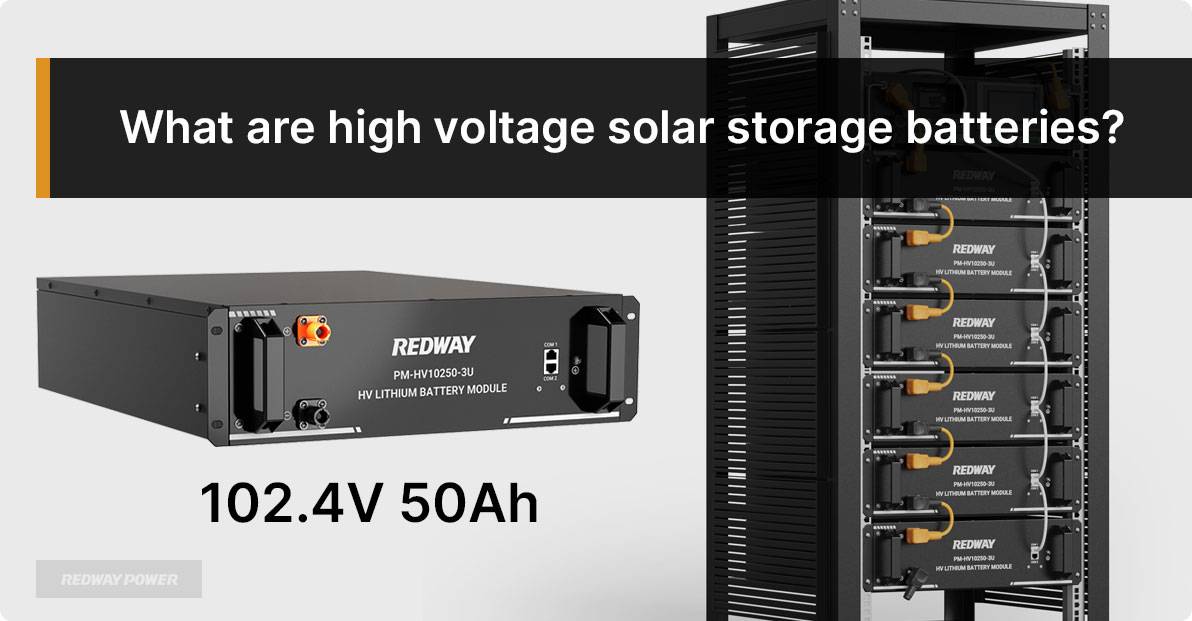High Voltage Solar Storage Batteries Factory
High Voltage Solar Storage Batteries, One-Stop Solution
Redway proudly leads as the premier global manufacturer of LiFePO4 HV Batteries. With their exceptional energy density, Redway LiFePO4 batteries are tailored for high voltage applications. Our expert battery team guides you in selecting the optimal LiFePO4 High Voltage Battery design, utilizing precise manufacturing processes.
As a prominent lithium battery manufacturer for OEM applications, Redway specializes in crafting, designing, and developing customizable LiFePO4 High Voltage Batteries. We offer comprehensive support for your branding business, providing options to personalize LiFePO4 HV Batteries with your logo, design, size, and specifications.
Choose Your High Voltage Energy Storage Battery Manufacturer
Custom High Voltage Energy Storage Batteries
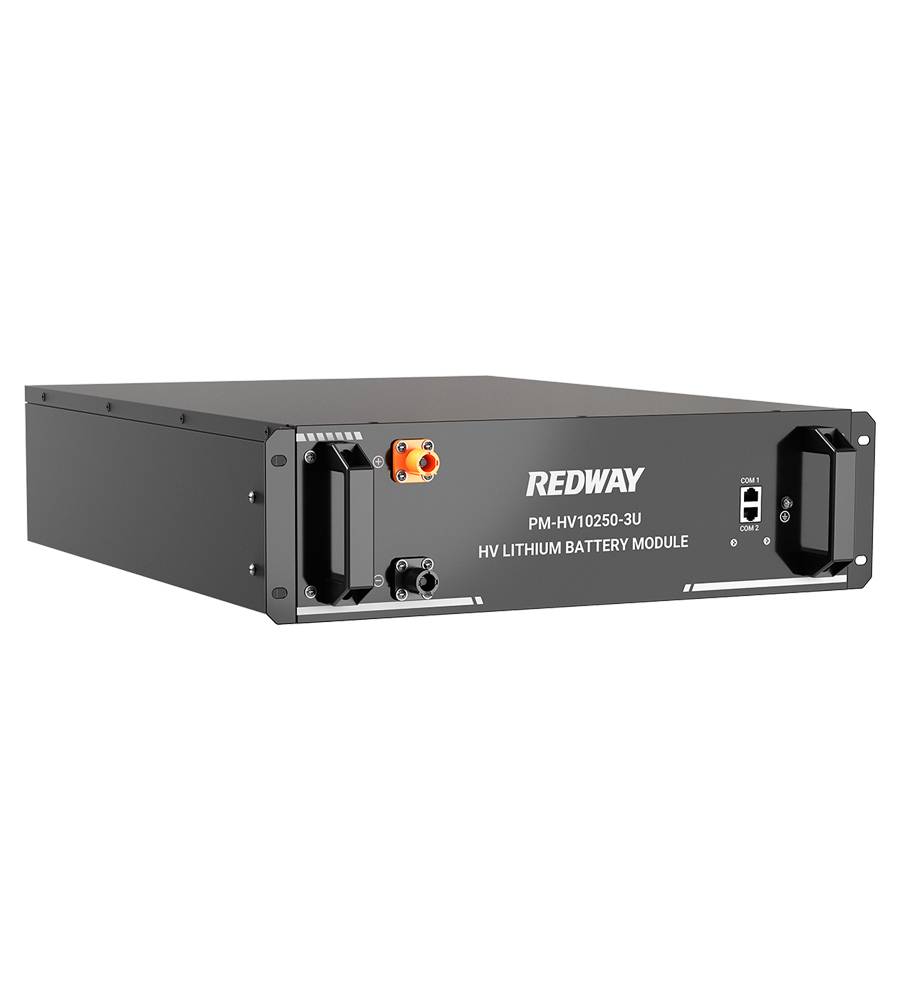
100V 50Ah HV-PM10250 3U
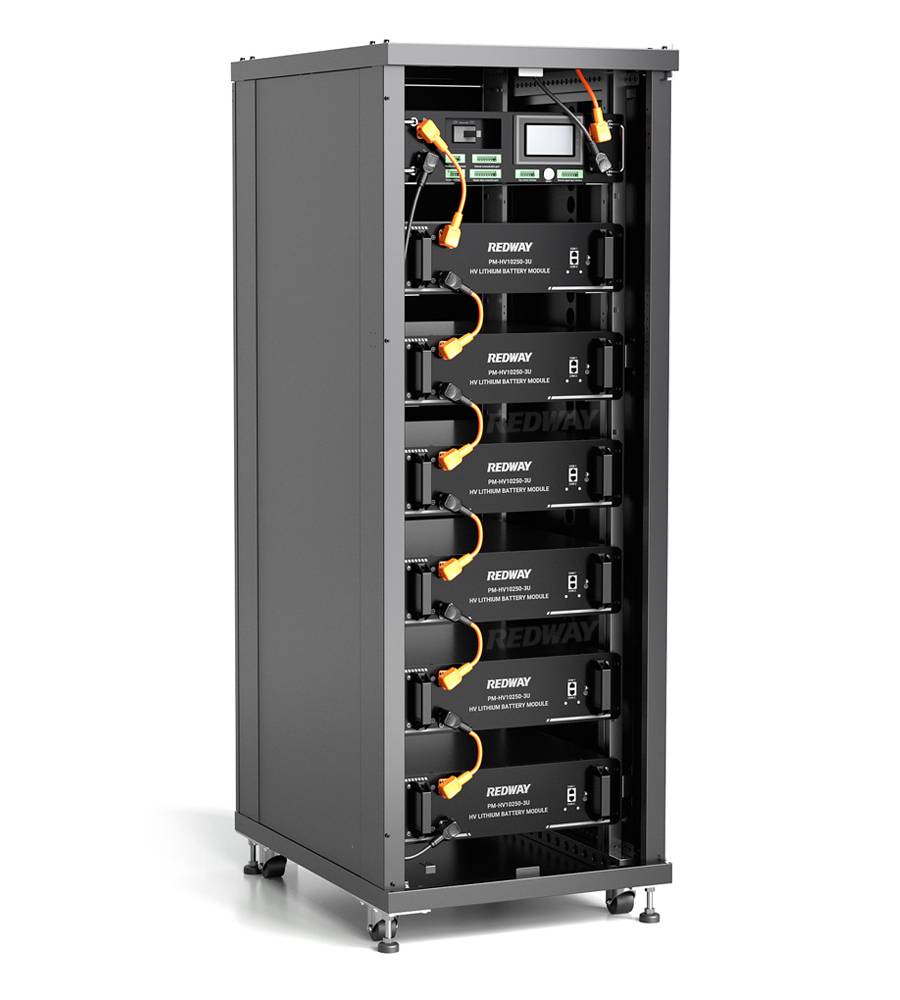
600V 50Ah 3U Rack System
What is the wholesale price of lithium battery?
You can click contact us or phone call us. We will give you multiple options of price.
Is Redway Power a trading company or factory?
Redway Power is a company with its own factory, integrating research, development, production, and sales.
How about the quality of Redway's LiFePo4 Battery product?
Redway Power boasts over 12 years of experience in LiFePO4 battery production and is an authorized supplier for CATL and BYD.
Can you do an OEM/ODM project?
Yes, we have engineers available to assist in designing and developing any related products.
What’s your MOQ?
MOQ varies according to battery voltage and capacity.
What payment terms can we accept?
We accept TT/Paypal/West Union, etc.
High Voltage Solar Storage Batteries Knowledge
High voltage solar storage batteries operate at higher voltage levels, typically 200 to 600 volts or more. They’re commonly used in large-scale solar installations, commercial buildings, and utility-scale solar power plants. Unlike low voltage batteries, high voltage ones offer greater efficiency, around 97%. Examples include Tesla Powerwall 2, Enphase IQ Battery 10, Panasonic EverVolt 2.0, LG Energy Solution RESU 10H Prime, and Redway Power 600V 50Ah 3U Rack System.
Here’s what you need to know:
Functionality: These batteries operate at higher voltage levels, typically ranging from 200 to 600 volts or more. They are commonly used in large-scale solar installations, commercial buildings, and utility-scale solar power plants.
Efficiency: High-voltage batteries are more efficient than low-voltage ones, with an efficiency of approximately 97%, compared to around 60% for low-voltage batteries.
Usage: They store excess solar energy during sunny hours, ensuring power availability when solar production is low. They play a crucial role in maintaining a steady and reliable power supply from solar systems.
A Home Energy Storage System (HESS) comprises solar panels, a grid-connected inverter, a Battery Management System (BMS), a lithium battery pack, and household appliances. Solar panels capture sunlight and convert it to electricity, while the inverter converts this to usable power. The BMS safeguards the battery, storing excess energy for later use by household appliances, ensuring a sustainable and resilient home energy system.
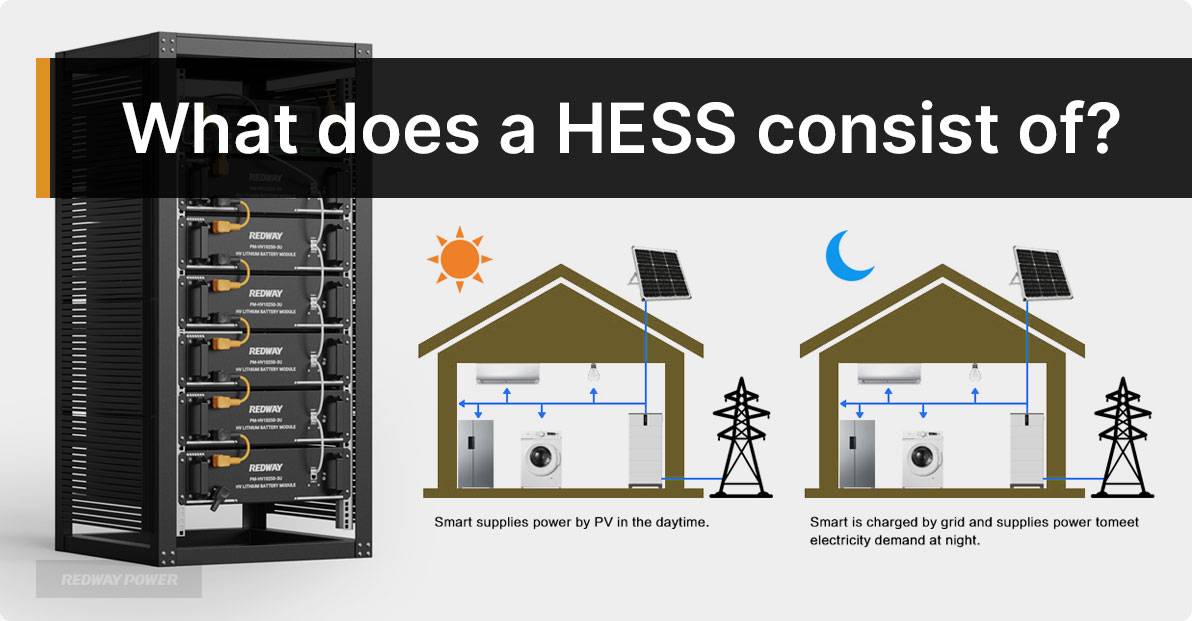
Let’s break down its key parts:
- Solar Panels: These are like magic energy catchers on your roof, soaking up sunlight and turning it into electricity for your home.
- Grid-Connected Inverter: It’s like a translator, converting the electricity from the solar panels into a type that your home can use.
- Battery System: This is like a giant rechargeable battery for your house, storing extra electricity from the solar panels for when you need it, like at night or during power outages.
By having a HESS, you can save money on electricity bills and have peace of mind knowing you have backup power when you need it most!
ESS and BESS both store and release energy, but they differ in their focus. ESS, or Energy Storage Systems, cover a wide range of storage methods like chemical, thermal, and mechanical. On the other hand, BESS, or Battery Energy Storage Systems, specifically use batteries for storage. Essentially, BESS is a type of ESS, specifically focused on battery-based storage.
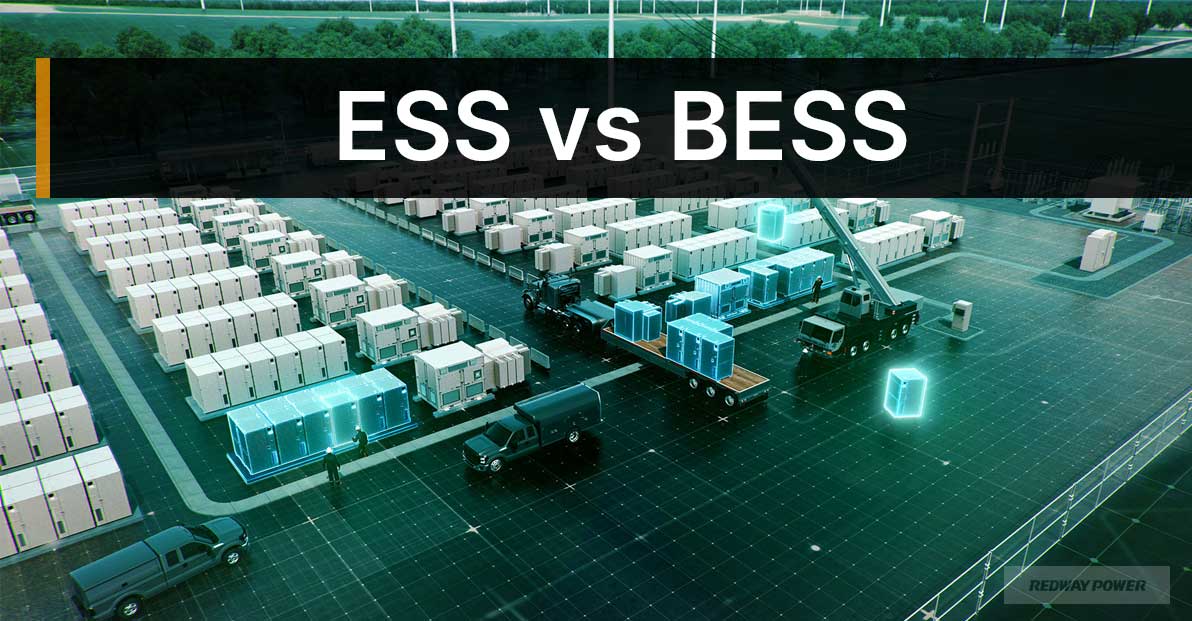
Let’s break down the difference between ESS and BESS in simpler terms:
ESS (Energy Storage System):
- ESS stands for “Energy Storage System” and refers to various methods of storing energy for later use.
- It includes different types like chemical, thermal, mechanical, and more, offering a broad range of options for energy storage.
BESS (Battery Energy Storage System):
- BESS stands for “Battery Energy Storage System” and is a specific type of ESS.
- Unlike ESS, BESS specifically focuses on storing energy using batteries, making it a more specialized form of energy storage.
In short, while ESS covers a wide spectrum of energy storage methods, BESS zooms in on battery-based storage.
The voltage of Energy Storage Systems (ESS) varies based on application and design. ESS supports voltage stability in PV-integrated distribution networks. Power Conversion Systems manage energy flow, and Battery Energy Storage Systems (BESS) utilize electrochemical cells with voltages like 11kV or 13kV. High-voltage BESS, up to 1,500V, are deployed in various settings, from residential to grid-scale applications.
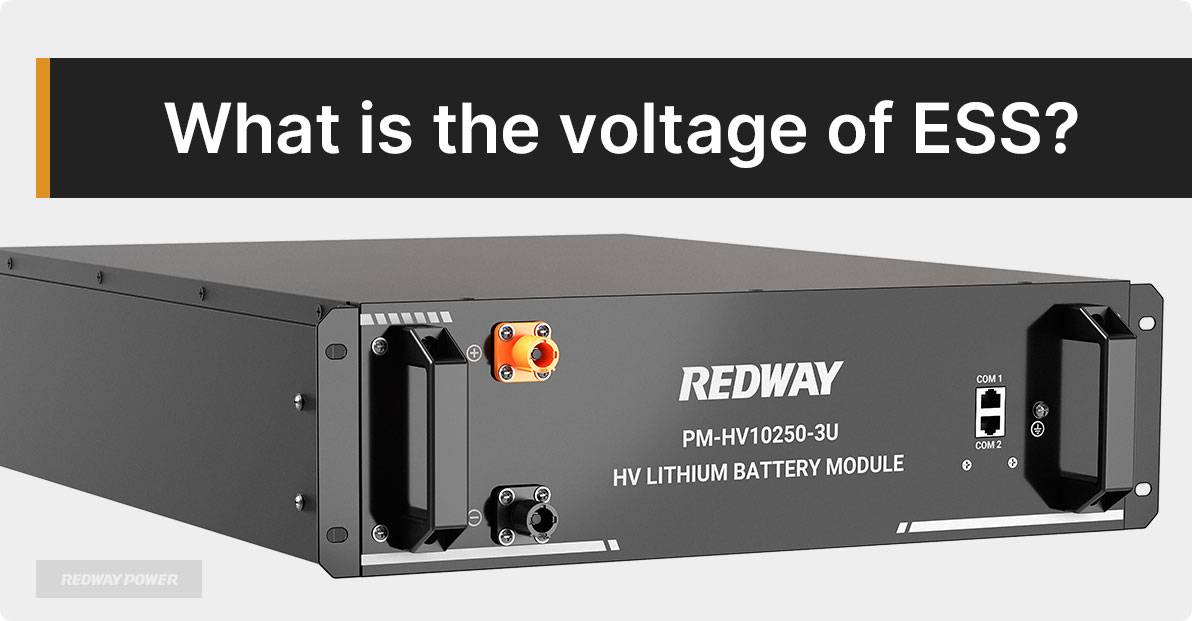
Here’s a breakdown:
Voltage in Distribution Networks:
- ESS maintains voltage stability in distribution networks with solar panel integration.
- This stability ensures a steady supply of electricity to homes and businesses, even during fluctuations in solar power generation.
Power Conversion Systems (PCS):
- PCS regulates energy flow between batteries and the electrical grid.
- By managing AC/DC and DC/AC conversion, PCS optimizes energy usage and distribution in ESS.
Battery Energy Storage Systems (BESS):
- BESS, a type of ESS, utilizes electrochemical batteries to store and release energy.
- These batteries operate at voltages suitable for grid connections, ensuring efficient energy storage and distribution.
Certainly! Running a house solely on solar power is possible but requires careful planning. Initial costs for solar panels, inverters, and batteries are significant. Assessing energy usage, choosing efficient appliances, and considering different configurations (like net metering or backup systems) are crucial. Weather dependence, battery storage, and maintenance are also important factors to consider for successful solar power usage.
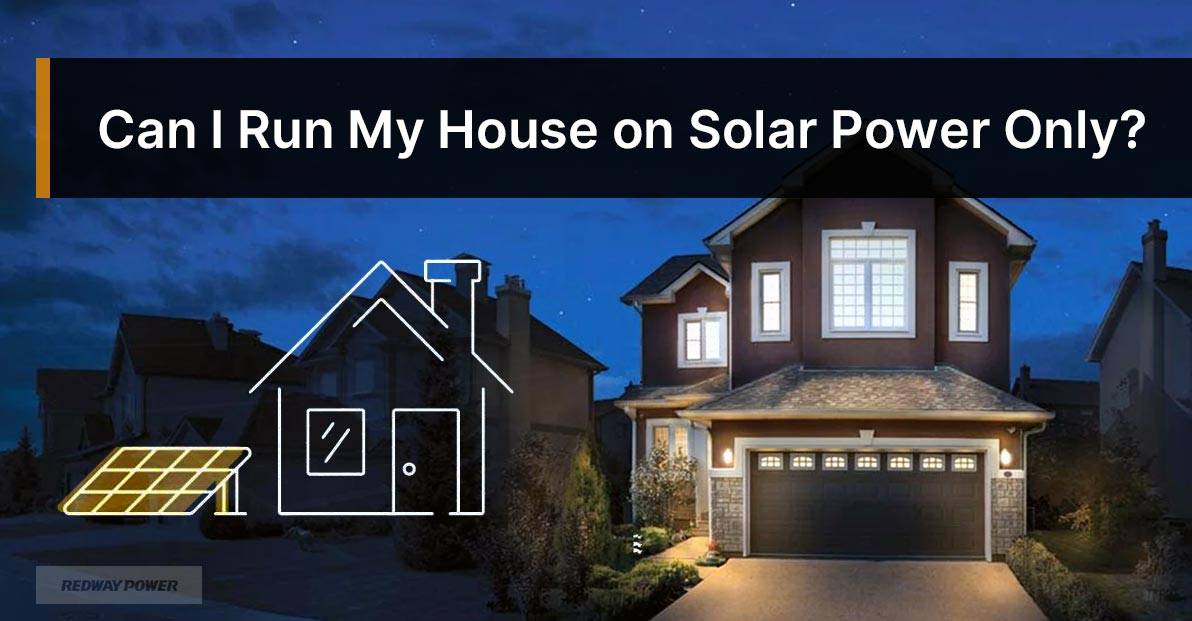
Here’s what you need to know:
Initial Investment: Setting up a solar system involves upfront costs for panels, inverters, and batteries. While solar energy is free once installed, the initial investment can be significant.
Energy Audit and Efficiency: Assess your energy usage and consider energy-efficient appliances to reduce consumption. Lifestyle adjustments can also help conserve energy.
Types of Configurations: Choose between connecting to the grid, using solar as a backup, or aiming for total energy independence. Factors like weather, battery storage, and maintenance are crucial for successful solar power usage.



